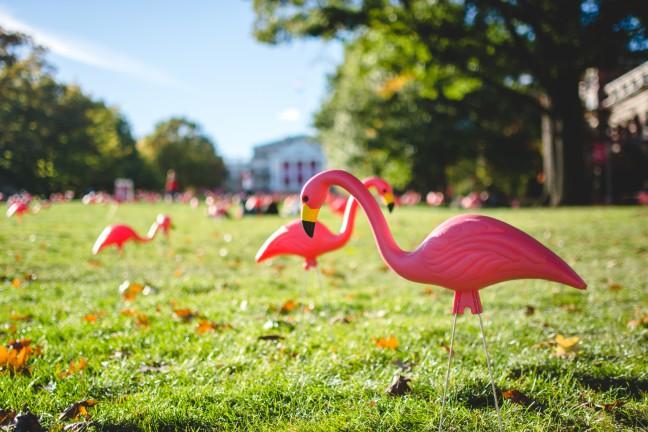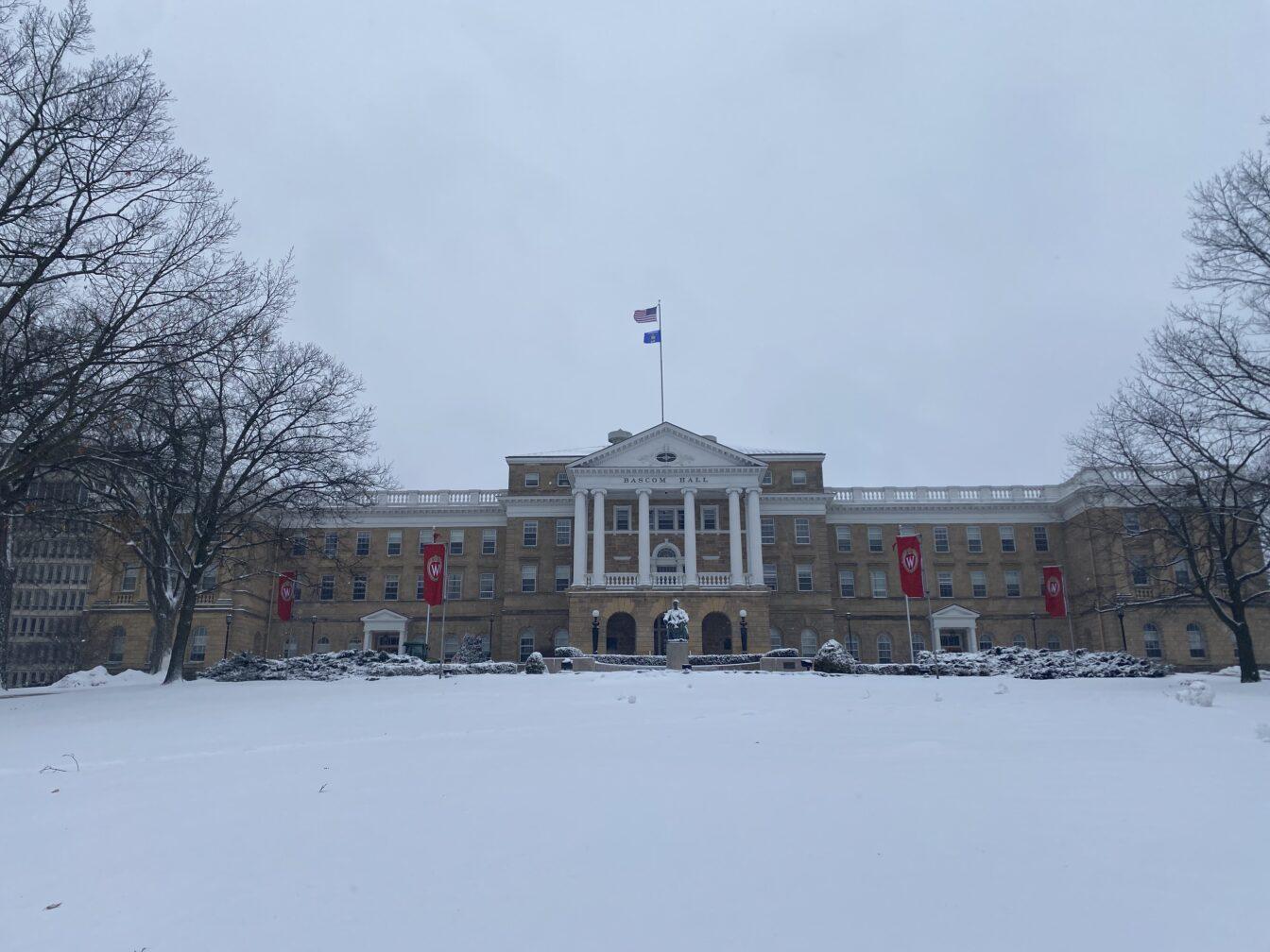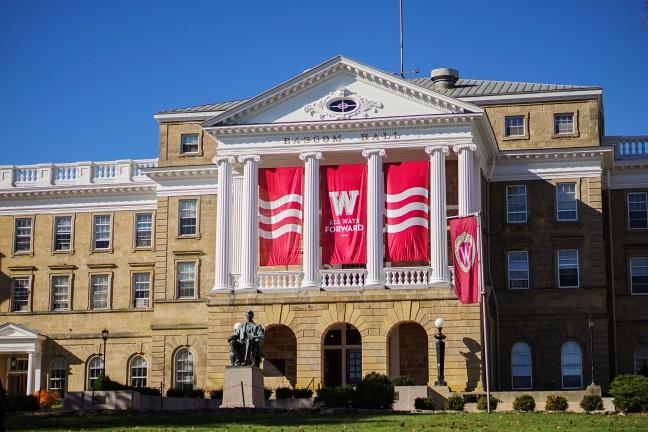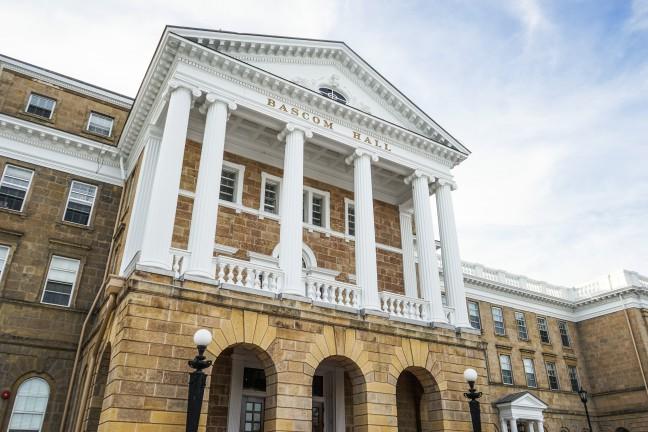This semester has produced a myriad of stories from an intensely important Supreme Court election to a sentencing hearing which could set the tone for how University of Wisconsin handles its cases of sexual assault. Here are the highlights and award-worthy stories from the spring of 2018.
Clown Car Award: Beginnings of Wisconsin gubernatorial primaries
Between the special election in Wisconsin’s 10th Congressional District or the contentious state Supreme Court race, the Wisconsin electoral season can best be described as tumultuous, to say the least. Although Wisconsinites have a break before returning to the polls this November, the beginnings of the 2018 gubernatorial election point to a race that will be anything but boring. Voters have a slew of options to choose from in the primaries — 19 Democrats, four Republicans, including incumbent Scott Walker, and eight from smaller third parties.
Given the significantly overcrowded Democratic field, many fear the division of campaign funds and inter-party discourse may mean an easy victory for Republicans, stifling any chance of Wisconsin’s burgeoning blue wave from taking over the governor’s office. Although the politics between the Democratic contenders are generally the same, a few candidates preach bipartisanship and centrism, which may be the trick to ensuring a Democratic victory. Centrism is known for drawing in moderates while still remaining attractive to those who vote within party lines.
Republicans are more optimistic, simply because the Democratic discourse allows for the significantly smaller amount of candidates time to fill their war chests. By the time a Democratic candidate is nominated for the general election, the Republican candidate will presumably have amassed more fundraising money and can run a more elaborate, efficient campaign. Only time will tell where the polls may lead, but one cannot doubt that based on previous elections this year, the 2018 gubernatorial race will be one for the books.
Overcrowding in Democratic gubernatorial primary may lead to Republican victory
System Finally Gets It Right Award: Alec Cook pleads guilty to five felonies
Former UW student Alec Cook dominated Wisconsin headlines following multiple accusations of sexual assault in Oct. 2016. After four individuals courageously stepped forward to out Cook for the sexual predator he is, Cook was held in Dane County Jail’s custody on a $200,000 bail by Oct. 27, 2016. Cook soon faced 21 charges involving 11 women which included charges of sexual assault, strangulation and suffocation.
Those 11 women finally saw some semblance of justice served to Cook in February when Cook entered a plea deal. Cook pleaded guilty to five felony charges which included three counts of third-degree sexual assault, one count of strangulation and one count of stalking. As a result of the plea, the remaining 16 charges were dropped, but Cook still faces up to 39 and half years in prison, up to a $95,000 fine and will have to register as a sex offender.
Cook’s sentencing hearing will take place in June, and from there, a true evaluation of justice will emerge. Most important to glean from this case’s initial prognosis is the gravity of the court’s eventual decision. The Wisconsin legal system finds itself in a historic position — in ultimate control of Cook’s fate and with the power to reverse the nauseating trend of sexual criminals receiving lenient sentences to no sentences whatsoever.
Looking ahead, Cook’s eventual sentencing hearing will provide the Wisconsin public with the answer to that ever crucial question. Will sexual predators on college campuses finally face retribution?
Cook plea, sentencing crucial to revolutionizing sexual assault protocol on campus
Best Meme Page Material Award: ASM elections
From March 12 to 14, voting was open for students to cast their ballots for the Associated Students of Madison spring elections. ASM has released voter turnout percentages online since 2007, and comparing the numbers over the years reveals one important fact — voter turnout is dropping. Only six percent of the student body voted in this semester’s elections — one of the lowest numbers for voter turnout in recent history. Student Election Committee Chair Kate Wehrman said this number is consistent with years past, but comparing the numbers does not support this claim. Ten years ago in the spring 2010 election, 34.5 percent of the student body voted.
The naming of Union South was on the 2010 ballot, causing a spike in votes, but this semester’s election focused primarily on elected officials. The campus may not see this as an important or relatable election process, but casting a ballot that determines who on campus will hold power is an important thing for people to consider.
But the students aren’t the only people at fault. ASM should focus more on outreach if they wish to have their numbers increase to those of the 2010 election and not remain an organization which does not, to the best of its ability, represent the campus fairly. School of Business representative Yogev Ben-Yitschak said he hopes ASM will increase their community outreach efforts next year, which will hopefully ring true. If no one votes in an election, it means they don’t care or respect the association where the election is taking place enough. Halting the decline of voter turnout is the first step in having the student body respect ASM.
There’s Trouble on the Farm Award: Trump Tariffs and Wisconsin Farmers
As a means of economic protection, President Donald Trump imposed tariffs on steel and aluminum imports, 25 percent and 10 percent respectively. This measure was meant to combat cheap metals from flooding into the American market, as a recent Commerce Department investigation concluded imported metals degraded American industrial based and therefore is a threat to national security. Although Trump was primarily interested in blocking China, his broad sweeping tariffs hit allies more heavily. For instance, Canada is at a particular disadvantage, even though they supply steel and aluminum to American companies and the U.S. military.
As a response to Trump’s actions, China increased tariffs on 128 American goods from dried fruit to scrap metal. Many Wisconsin agricultural products made the list, which only increases the economic hardship on Wisconsin’s farmers. China slammed a 25 percent tariff on American pork products, from the liver to a whole frozen pig’s head. Wisconsin pork producers exported nearly a quarter of all pork produced in the U.S., and China was the third largest buyer, meaning that these tariffs are a danger to Wisconsin’s pork industry.
Similarly, a 15 percent tariff on cranberries was also added, which slows the market growth Wisconsin growers have been working toward to counter the surplus-caused decrease in prices. Wisconsin’s hidden treasure, ginseng root, is also in danger, which calls into question it’s role in the Foxconn development. Overall, Trump’s tariffs do less damage to the Chinese metal industry and more to the agriculture that fuels America’s heartland. This comes as a blow to communities that took Trump’s “America First” initiative to heart. Although this award may sound funny, the damage to small farms across the state is no laughing matter.
China’s retaliation to Trump’s steel tariffs could destroy Wisconsin’s agriculture industry
Ya Did Good Kid Award: Bucky’s Promise
On Feb. 8, the University of Wisconsin followed in the footsteps of several other Big Ten schools, announcing a pledge to “cover four years of tuition and segregated fees for any incoming freshman from Wisconsin whose family’s annual household adjusted gross income is $56,000 or less, roughly the median family income in Wisconsin.” The goal of the program, as put by Chancellor Rebecca Blank, is to “ensure anyone who is admitted can afford to be a Badger.”
Over the past 50 years, time spent in higher education, and even education beyond a bachelor’s degree, has become effectively required to enter an increasingly competitive workforce. But what’s unfortunately occurred in the same time frame is college tuition has increased at a rate with which post-graduation starting salaries have not kept up, making higher education particularly inaccessible.
The issue here is if you don’t have a college degree, it’s difficult to find a lucrative job, but if you do invest in higher education, it’s hardly worth it once you finish paying off all your loans. There’s really no good answer.
With such drastic wealth inequality here in Wisconsin, a program like Bucky’s Promise takes massive strides toward dismantling the oppressive systems that make higher education so inaccessible. Education is one of the most powerful tools in the world, and increasing accessibility to education, especially that which opens even more doors than a high school diploma, is the intersection of addressing every branch of injustice, inequality and intolerance. Thanks to Bucky’s Promise, more Wisconsinites than ever before will receive the education they deserve.
Bucky Promise takes first step in rejecting exploitative, inaccessible education system
Who Run This Motha? Award: Rebecca Dallet Wins Supreme Court Race
In a year of elections which have an unprecedentedly high immediate impact on the makeup of our nation’s government, Wisconsin’s State Supreme Court election results were deemed nationally to offer unparalleled insight into the eventual patterns of upcoming state elections. The results in Wisconsin were said to be a an indicator of where the nation is headed.
Supreme Court elections are traditionally supposed to be nonpartisan venture. Candidates are supposed to present themselves in as impartial a manner as possible. But, past case rulings inevitably result in candidates who, try as they might to appear without party affiliation, become quasi-part candidates. The two primary candidates for the seat, Sauk County Judge Michael Screnock and Milwaukee County Judge Rebecca Dallet faced off in a fierce election battle.
Screnock, the effectively conservative candidate, had a well-rounded history of cases, but was glaringly sponsored by the controversial and looming NRA. Dallet, the effectively liberal candidate, had a background in civil and criminal courts, vowing to “… making tough decisions to send violent criminals away, and rendered compassionate verdicts to give people a second chance.”
An eventual Dallet victory, by a margin of 56 to 44 percent, meant two integral things for the state of Wisconsin. First, the state can boast a candidate who can feasibly rule on cases without an agenda-pushing political giant in the NRA breathing down her neck. Second, those implications of Wisconsin’s Supreme Court acting as an indicator of upcoming nationwide Senate and Gubernatorial election corroborate the blue wave of liberal victory that’s swept and will hopefully continue to sweep the nation.
The Editorial Board serves to represent the voice of the Badger Herald editorial department, distinct from the newsroom, and does not necessarily reflect the views of each staff member.



















